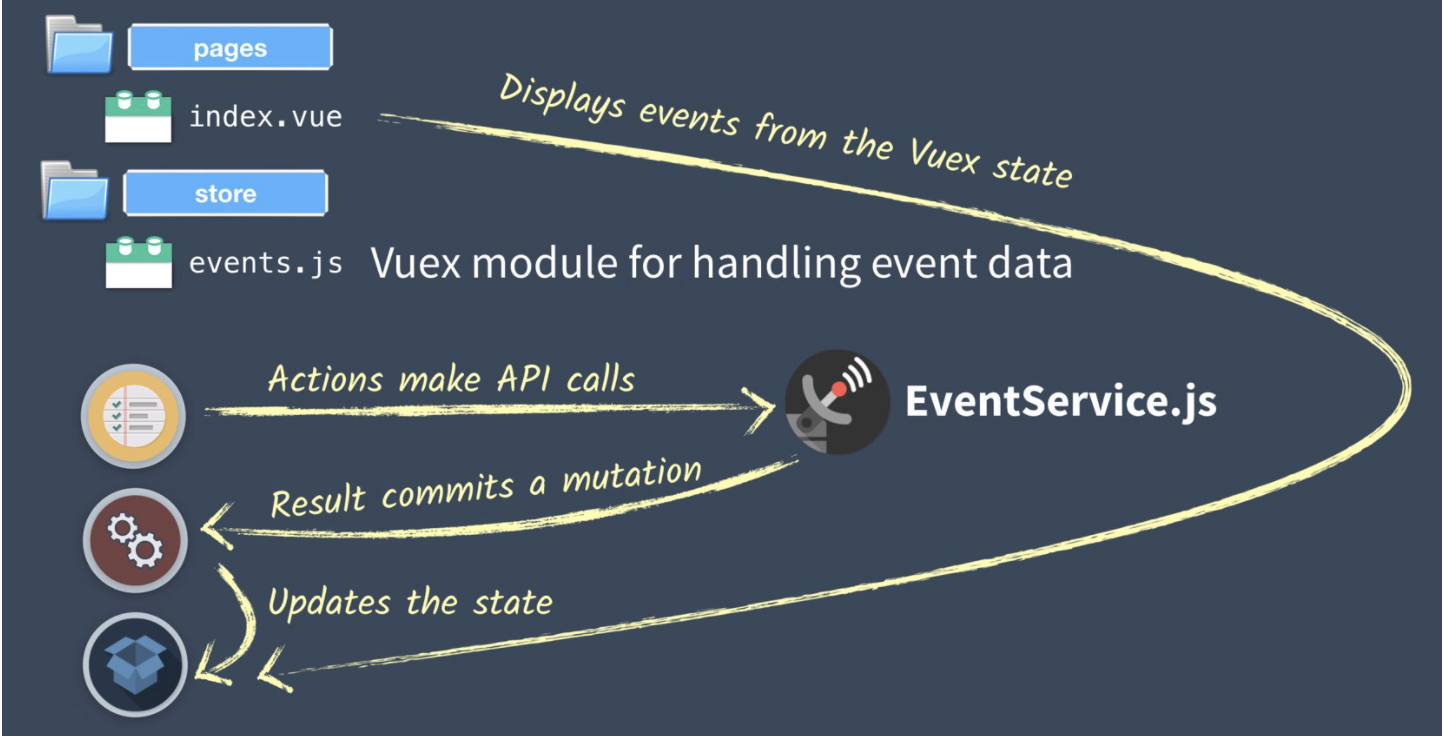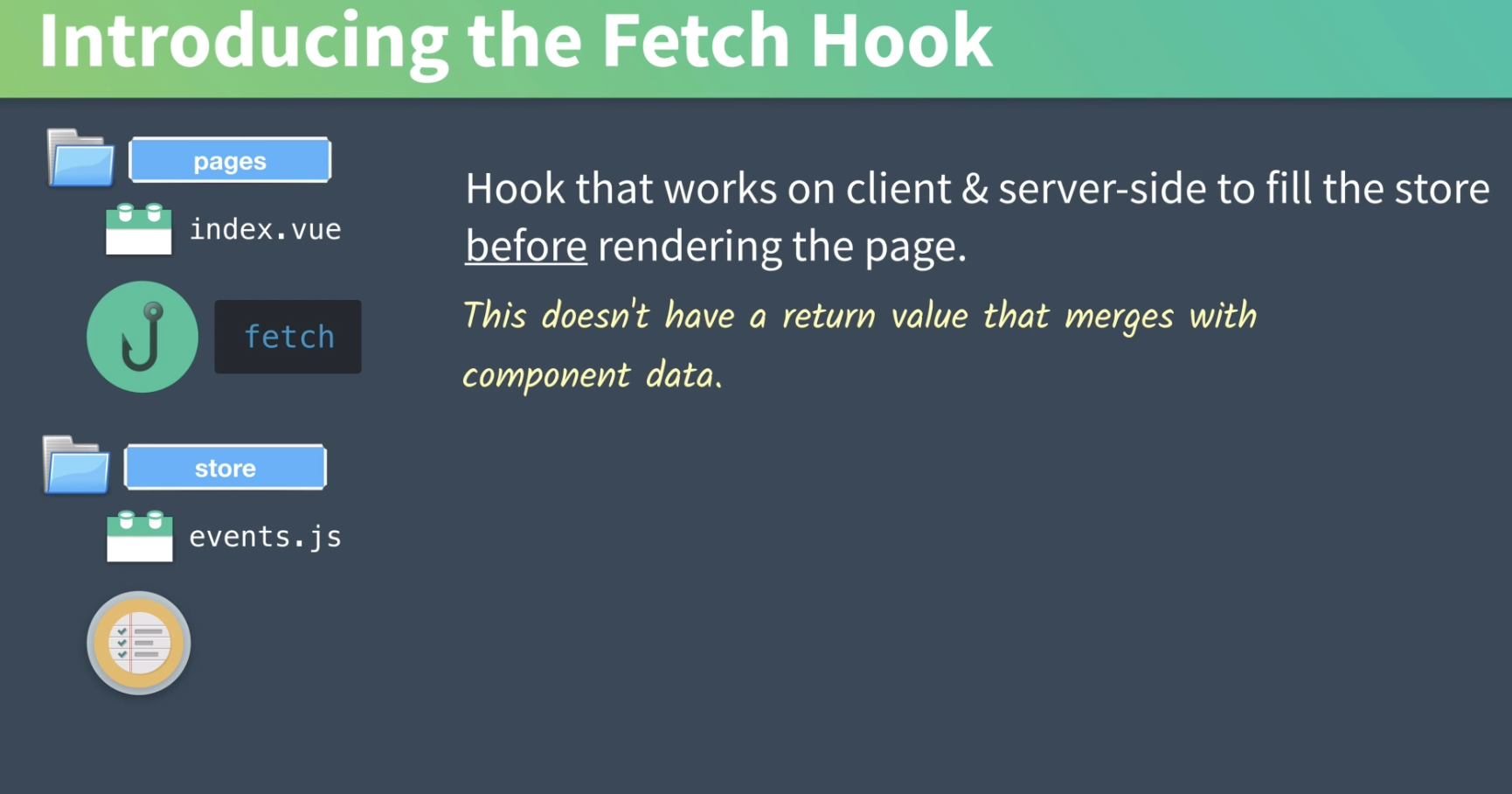# Vuex - Nuxt
# Creating an Event Service
/services/EventService.js
import axios from 'axios';
const apiClient = axios.create({
baseURL: `http://localhost:3000`,
withCredentials: false,
headers: {
Accept: 'application/json',
'Content-Type': 'application/json',
},
});
export default {
getEvents() {
return apiClient.get('/events');
},
getEvent(id) {
return apiClient.get('/events/' + id);
},
};
use folder store

use fetch-hook

state has to return an anonymous function
import EventService from '@/services/EventService.js';
export const state = () => ({
events: [],
});
export const state = () => ({
events: [],
});
export const mutations = {
SET_EVETNS(state, events) {
state.events = events;
},
};
export const actions = {
fetchEvents({ commit }) {
return EventService.getEvents().then((response) => {
commit('SET_EVENTS', response);
});
},
};
by default, all vuex-modules are namespaced
Take note that state value should always be a function to avoid unwanted shared state on the server side. Another thing to keep in mind is that we need to return a promise from our fetchEvent action. This will help our component know when this promise is resolved so it can continue loading the page.
The fetch page component hook works on the client & server-side to fill the store before rendering the page. Unlike asyncData this doesn’t have a return value that merges with component data, which we don’t need anymore.
<script>
import EventCard from '@/components/EventCard.vue'
import { mapState } from 'vuex' // <--- To map event
export default {
...
async fetch({ store, error }) {
try {
await store.dispatch('events/fetchEvents')
} catch (e) {
...
},
computed: mapState({
events: state => state.events.events
})
}
</script>